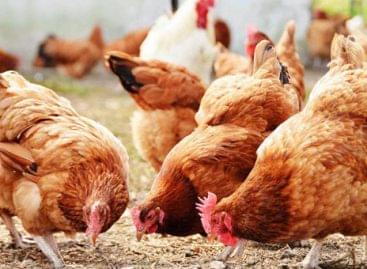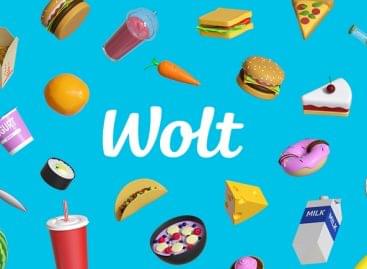The agriculture of the future is digital
There is a great need for new ideas, revolutionary methods, and the adaptation of the latest technologies to domestic conditions, which offer a practical solution that can be used here in the Carpathian Basin for farmers as well – said Zsolt Feldman, Minister of Agriculture, in his welcome address at the conference entitled “Agriculture of the Future” Secretary of State for Agriculture and Rural Development.

(Photo: AM/Tibor Vermes)
At the event organized by the National Chamber of Agrarian Economy (NAK) on Wednesday, experts, startups dealing with agricultural technology, dominant and influential market players held a lecture and a practical demonstration. At the end of the day, the closing event of NAK’s incubator program took place, where Zsolt Feldman, talking about the importance of cooperation, said: in our increasingly complex world, the most important basis for innovation is the ability to cooperate. Innovation works well where people who are independent of each other, even with different knowledge, working in different fields of expertise, with different insights, are able to cooperate and work in a network. That is why he welcomed the initiative of the Chamber of Agriculture, which brings together the needs of companies, startups, potential financiers, companies that can support technological developments with a professional background.
All of this helps Hungary and invigorates the innovation environment, without which the essential renewal of agriculture cannot be achieved
According to the Secretary of State’s formulation, in today’s European agriculture, the agrarian countries of those countries where, on the one hand, the farmers are educated and have adequate knowledge, and on the other hand, where the innovation and knowledge background is strong, are leading. The Danes, the Dutch, the Irish – he listed – are ahead not only because they have hundreds of years of advantage in cooperation, so they had a way to accumulate knowledge spanning several generations and market it, but because they are strong in innovative and cooperative solutions.
Zsolt Feldman said at the round table discussion held as part of the event that the tender structures of the past period encouraged the digital transition
The openness to the use of new technologies was primarily experienced by medium-sized and larger economies. But, as he explained, the wide spread of innovative solutions is served, for example, by access to the knowledge base of the digital academy, or the fact that precision farming and engineering training have now become part of higher agricultural education. The state secretary called it an important task to avoid the development of a digital divide in Hungary. As he said, for those producers who want to improve their profitability, data-based management is clearly their present and their future. The aversion to digitization can be broken by presenting concrete results. If we present the results of farmers using precision technologies with similar characteristics, it can make the need for change acceptable and attractive. Agriculture has become a sector with very expensive technology. However, failure to do so means final separation, he said. Technological development must be used, which can be an effective and efficient tool for the process, thanks to which the growth of the Hungarian economy moves from an intensive to an extensive stage, i.e. it puts the emphasis on quality performance and high added value, added Zsolt Feldman.
AM
Related news
The EP accepted the safeguard clauses concerning the Mercosur agreement
🎧 Hallgasd a cikket: Lejátszás Szünet Folytatás Leállítás Nyelv: Auto…
Read more >AM: Ministry of Agriculture supports the replacement of plantations damaged by frost
🎧 Hallgasd a cikket: Lejátszás Szünet Folytatás Leállítás Nyelv: Auto…
Read more >Related news
Burger, condom and red rose: this is what Valentine’s Day is like at Wolt
🎧 Hallgasd a cikket: Lejátszás Szünet Folytatás Leállítás Nyelv: Auto…
Read more >









